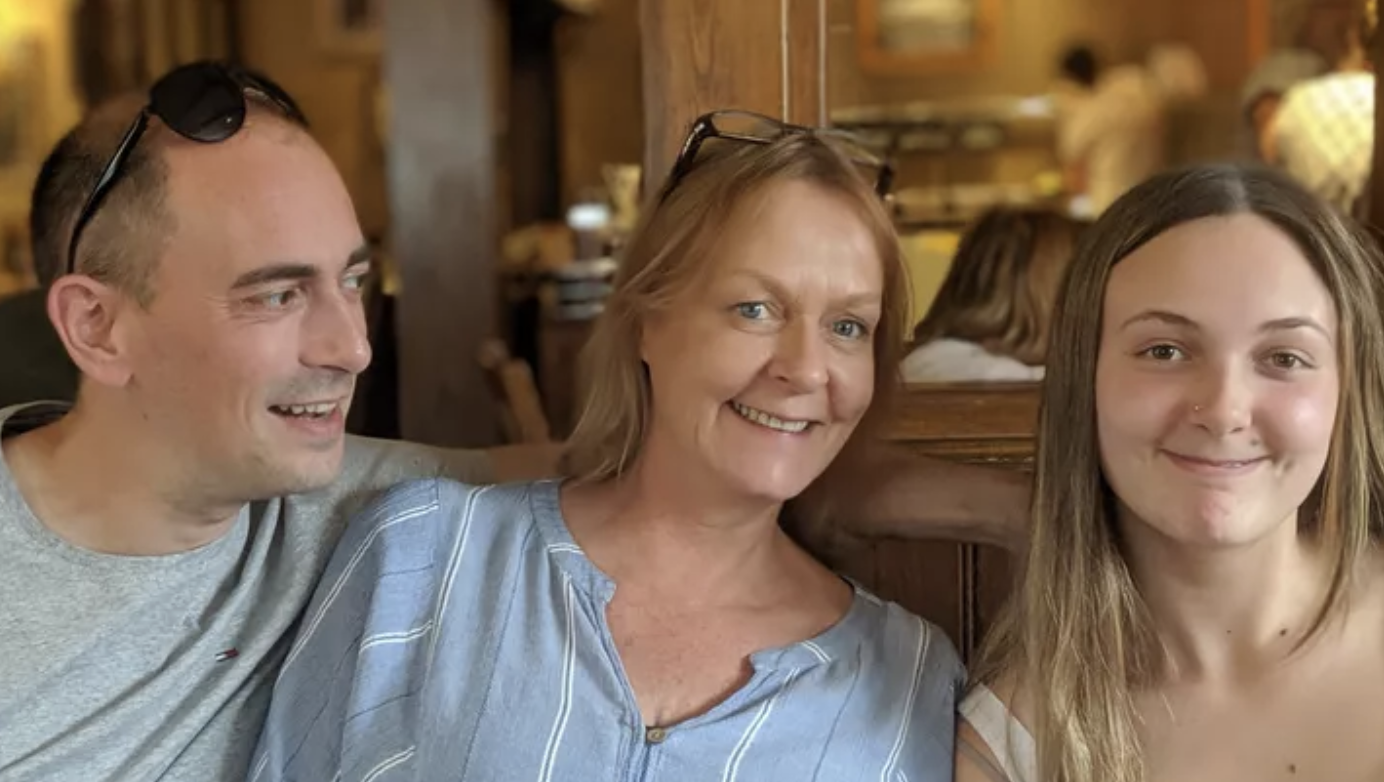A blushing bride preparing to marry her longtime partner got a devastating diagnosis before her wedding when she learned that the sore throat she had long ignored was caused by esophageal cancer.
Lesley Perowne first started to complain about her sore throat last Christmas, which got “worse and worse” in the weeks that followed, her family told the Liverpool Echo.
Read More
The family refused to accept that, however, and had complete faith that Perowne would pull through in the end.
It was not long until they encountered their first major hurdle with her treatment.
“Lesley started chemo but she was throwing it all up and it had to be stopped because of complications,” said Salamone’s brother Luka.
“She couldn’t eat and eventually couldn’t drink so the only option was radiotherapy.”
The outlook was not good, which is why everyone was shocked to hear Perowne announce in September that the treatment was working and her throat opening up.
That hope was short-lived though, as soon after doctors discovered a dot on her lung and problems in her chest.
“We had a glimmer of hope. They found a chest infection and they were going to sort it,” said Luka.
“But then suddenly, within days, she was gone. We really thought she would come through it, at least in the short term, so in that sense it came as a big shock.”
Luka said that family is still coming to terms with their loss, and the giant hole that has been left in their lives.
“Lesley was very strong-willed, probably the worst patient the hospital had ever seen. It was like she didn’t take it seriously, she thought it would be a blip in the grand scheme of her life. She was so tough,” he said.
“She just carried on. She was a hard worker, ambitious and very honest. She has always done things for people in need, was always there to help.”
The loss is hardest of all on Mia, who thought she would be seeing her parents say “I do” this year and is instead dealing with the loss of her mother.
What to Know About Esophageal Cancer
Most esophageal cancers start in the innermost lining of the esophagus (the epithelium) and then grow into deeper layers over time.
This is why individuals with advanced esophageal cancer have limited treatment options, particularly after their disease has progressed.
Chemotherapy is the recommended treatment for patients in the advanced stages of esophageal cancer. The chemotherapy is largely used to relieve pain and has not been shown to have long-term benefits.
Some esophageal cancer patients are also being treated with immunotherapy, which used the body’s own immune system to fight the disease.
Esophageal cancer diagnoses are graded on a scale from GX to G3. GX stands for “the grade cannot be assessed.” G1, or Grade 1 means the cancer cells look more like normal esophagus tissue. G3, or Grade 3 means the cancer cells look very abnormal. And G2, or Grade 2 falls somewhere in between G1 and G3. These grades are often abbreviated to “low grade” and “high grade.”
Treatment of Esophageal Cancer
Signs And Symptoms of Esophageal Cancer
- Problems swallowing – Often there is a feeling like the food is stuck in the throat or chest, or even choking on food. The medical term for this is “dysphagia” and it can often be mild in the beginning, and get worse over time.
- Excess mucus or saliva – This occurs because as the esophagus grows, people begin producing more saliva to help food pass through the esophagus.
- Chest pain – Some people have discomfort in the middle of their chest, or a feeling of pressure or burning in the chest.
- Weight loss – Swallowing problems keep people from eating as much food, which makes them lose weight unintentionally. Decreased appetite and increased metabolism from the cancer also contribute.
- Hoarseness, chronic cough, vomiting, hiccups, bone pain, bleeding into the esophagus
There are a number of ways that doctors test for esophageal cancer. They include:
- Imaging tests – Using x-rays and other techniques, doctors can create images of the inside of your body
- Barium swallow – After you swallow a thick substance called barium, doctors take x-rays, and the esophagus will be outlined clearly with the liquid.
- Other scans including CT scan, MRI, PET scan
- Endoscopy – Using an endoscope (a long thin tube) doctors pass a camera into your body, to view and remove parts of the esophagus for biopsy
- Blood test
Symptoms of Esophageal Cancer
Learn more about SurvivorNet's rigorous medical review process.

